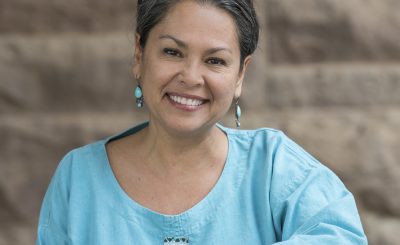I had the pleasure recently of engaging a conversation with two remarkable UWC alumni on the topic of polarization and the UWC mission. It was a fascinating hour where Doug Turner ‘87 and Xochitl Torres Small ‘03 Waterford shared their experiences coming from two different political parties but with UWC experiences that were very similar. The discussion was successful on two fronts: First, we modeled a civil conversation between people with divergent views. Second, they helped all of us think about polarization in different ways and, more importantly, challenged us to do several things differently.
Good thinking leads to better action. Here are my action items after the conversation:
- Take the long view: I was struck by very disparate comments and questions from two of our audience members. One asked if the current state of discourse in our country was an indication that the country is headed for ruin; might our democracy have run its course? Another suggested we take a longer view and understand that polarization has always been part of the fabric of our country. It ebbs and flows over decades and generations and, with deliberate effort, corrects itself. I realize I should neither presume or despair. At any rate, the immediate frustration we all feel should be tempered with a longer view backwards and optimism looking forward.
- Double down on empathy: A theme that kept coming up, no matter which question I asked or the direction the conversation went, was the critical importance of empathy. When we start to think that people who see the world differently than we do are somehow less worthy or ill-intentioned, polarization can really set in. The more we embrace the humanity of those who see things differently the more we can engage in meaningful dialogue. That doesn’t mean we give up our principles or dearly held views, but it means we listen from a position of goodwill.
- Follow diverse, thoughtful people: As the president of a school with students from over 90 countries who come with their own values and cultural backgrounds, I talk a pretty good game when it comes to diversity. It’s a necessary part of the job and resonates with my core values. But Xochitl and Doug encouraged everyone to follow thoughtful leaders who have different views than we do. They made me take a hard look at the pile of books on my nightstand and the newsfeed on my phone. A quick look tells me I can do better, adding more “voices from the other side of the aisle.” There are plenty of well-reasoned arguments for points of view different from mine and I know I need to work harder to understand them.
There are many reasons I came to work at UWC-USA six years ago– the motivated students and dedicated faculty among them. But the biggest reason I came to work here is the UWC mission. The UWC mission is not just a bunch of pretty words to me; it’s a set of guiding principles and values. I’m more convinced today than I have ever been that the mission asks – or even demands – that I do my part to seek understanding, collaboration, and unity. We can disagree, and we should disagree, but disagreement without understanding and empathy leads to the kind of shallow, damaging discourse that advances only the narrowest interests. I’m energized and ready to do my part on behalf of the common good – I invite you to join me.

